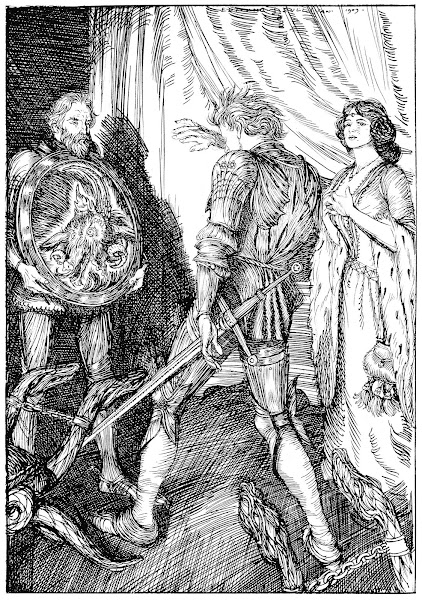In the first Episode of Season 2 of Tales of Mystara, I discussed some of my solo role playing mechanics, in an effort to help listeners better understand how I run my solo games. This is something I will try to do regularly in Season 2 and I figured it would make sense to include these short tips in this blog.
I have been asked on several occasions how I stop myself from meta gaming, especially when running a pre-published adventure solo. This is actually a pretty easy thing to achieve, if you approach the problem of solo gaming in a certain way...
Avoiding Meta Gaming with Character Actions - A Solo D&D Tutorial
I've always approached the concept of playing D&D or other tabletop role playing games solo as a design problem that needs to be solved. For me, the problem is handled from three angles:
- The first angle is to emulate the role of the Dungeon Master, so I can experience the game from the perspective of a player.
- The second angle is to emulate player actions so I can experience the game from the perspective of the Dungeon Master.
- The third angle is to provide a means to experience the game from the perspective of the observer.
I try to mix these three perspectives seamlessly so I can gain the ultimate tabletop fantasy role playing experience.
I think it’s easier to lose yourself in a world, if that world acts freely, of its own accord and you feel at each moment that you are along for the ride. If I can suspend my disbelief, immerse myself and be surprised and enchanted by each moment as it arises then I have achieved my goal.
By emulating player actions it’s easier to avoid meta gaming. Meta gaming, in this context for those who haven’t heard the term, is making use of knowledge learned outside of the game, that a character would not know.
To achieve player autonomy I tend to roll dice to determine which character will act in a given situation. A dice with sides equal to the number in the party will suffice, with any additional sides meaning they act as a party, but remember that sometimes actions the characters take might be quite obvious so there’s no need for a roll.
You’re probably wondering how randomly determining a character's actions affects logic. It’s important to remember that in these situations logic won’t always apply. For example, in a fantasy novel, characters tend to act very logically and tend to take the best possible action in a situation. In a group game of D&D this isn’t the case, players often do illogical things. They might try something goofy or make silly mistakes. That’s okay, it’s part of the fun of the game and often leads the story down surprising avenues. We tell great stories about these kinds of situations when we recall group games, so there’s every reason to have this in our solo games too!
To decide what a character does I roll on a table of common character actions. A simple d20, with each column having three entries to choose from. Things like “Hit, touch, look, or listen, attack, intimidate.” I simply choose the result that makes the most sense.
Here is an example:
- Climb, taste, cast
- Drink, throw, pray
- Eat, tie, capture
- Hit, touch, look
- Kill, turn, help
- Kiss, switch, heal
- Knock, unlock, hunt
- Lick, untie, forage
- Lay on, close, deceive
- Listen, attack, intimidate
- Lock, open, fire
- Move, break, persuade
- Pull, swim, perform
- Push, take, dodge
- Read, light, use
- Search, jump, charge
- Show, hide, cut
- Sit, give, evade
- Smell, sneak, feed
- Speak, steal, collect
Just some food for thought... Let me know what you think in the comments and be sure to check back for more content. In the meantime:
- Follow me on Twitter @crawlersolo
- Check out my YouTube content at youtube.com/c/SoloDungeonCrawler
See you next session...
Support Me with a Donation
If you enjoy my content and find value in it and would like to send a small donation over to show your appreciation and help support this blog so it can continue to grow then please follow the link below to make a donation via PayPal.

Hello, I have been following your channel for a while. I also want to get into solo RPG. Your method is really very interesting! I will try to apply it. But above all, I have to prepare the tables (and translate them into my usual language, French), as you did in your notebook in a video. Thank you very much for your work.
ReplyDeleteHi there. Thanks for the comment and for planning to give some of my methods a go! I hope it works out for you. Drop by any time to let me know how it's going.
DeleteDungeons and Dragons
ReplyDelete